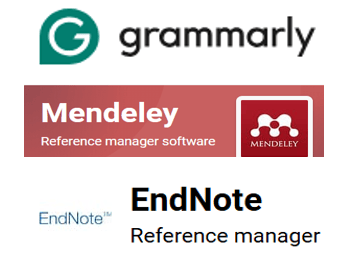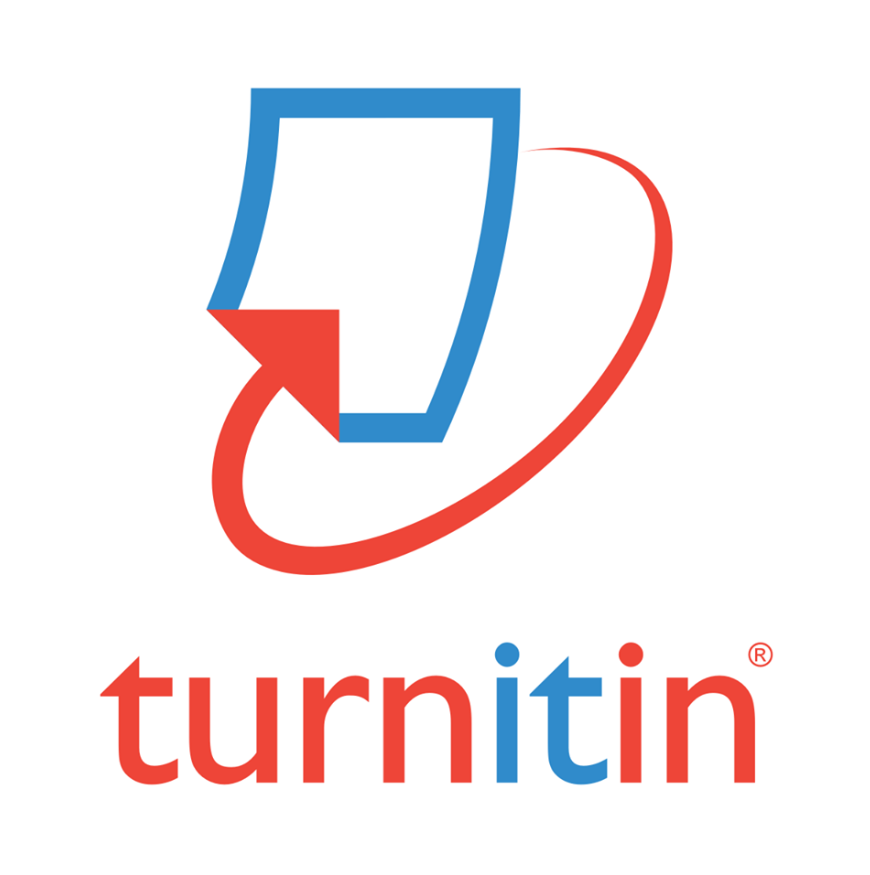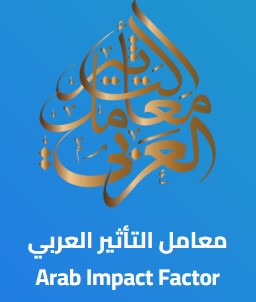Classifying the 1st Year Academic Performance of Nursing Students at Tobruk University via Data Mining with SQL and WEKA Tool
DOI:
https://doi.org/10.37375/sjfssu.v4i1.2581الملخص
Data mining is a tool that can identify hidden patterns affecting academic success. The objective of this research is to investigate and classify the academic performance of first-year nursing students at Tobruk University. This study concentrates on the preliminary stage of data preprocessing and data mining classification. The methodology to classify academic performance includes data acquisition and preprocessing stage using SQL commands to extract student data from the university database and undergo basic cleaning and transformation. Initial classification and data analysis followed using the preprocessed data, further refined by the WEKA data mining tool algorithms including BayesNet, NaiveBayes, JRIP, and J48. Results of the preliminary data distribution and initial classification show that J48 is the most accurate model creator using regular classification (88.6619) and attribute selector (97.8261). Relative to the other three algorithms, J48 also recorded the highest precision, recall, F1 measure, and the lowest error measurement. The recorded Kapa stat of J48 (0.7779 and 0.9599) also proves the significance of the classification result, interpreted as substantial to near-perfect reliability scores respectively, which BayesNet and JRIP also attained. The results reveal that Finals (final exam result) attribute is the biggest factor in determining the descriptive Rating of a student’s grade at the university. The created model can serve as a classifier for future test sets and may provide a foundation for further research and model development. Further modification will help discover what factors contribute to student success and what applicable interventions are needed to improve the academic achievement of students in the nursing program.
المراجع
Aher, S. B., & Lobo, L. M. R. J. (2011, March). Data mining in the educational system using weka. In International conference on emerging technology trends (ICETT) (Vol. 3, pp. 20-25).
Ahmed, Md & Kabir, Md. (2022). Analysis of University Students' Performance Using WEKA to Enhance the Education Quality. BAUET Journal. 03. 1-18.
Almarabeh, H. (2017). Analysis of students' performance by using different data mining classifiers. International Journal of Modern Education and Computer Science, 9(8), 9.
Alyahyan, E., & Düştegör, D. (2020). Predicting academic success in higher education: literature review and best practices. International Journal of Educational Technology in Higher Education, 17, 1-21.
Barakeh, A. M., Mezher, M. A., & Alharbi, B. A. (2024). Literature Review for Educational Data Mining Systems—Fahad Bin Sultan University Case Study. In Artificial Intelligence-Augmented Digital Twins: Transforming Industrial Operations for Innovation and Sustainability (pp. 435-453). Cham: Springer Nature Switzerland.
Baranyi, M., Gál, K., Molontay, R., & Szabó, M. (2019, November). Modeling students’ academic performance using Bayesian networks. In 2019 17th international conference on emerging eLearning technologies and applications (ICETA) (pp. 42-49). IEEE.
Bhargava, N., Sharma, G., Bhargava, R., & Mathuria, M. (2013). Decision tree analysis on j48 algorithm for data mining. Proceedings of international journal of advanced research in computer science and software engineering, 3(6).
Bressane, A., Zwirn, D., Essiptchouk, A., Saraiva, A. C. V., de Campos Carvalho, F. L., Formiga, J. K. S., & Negri, R. G. (2023). Understanding the role of study strategies and learning disabilities on student academic performance to enhance educational approaches: A proposal using artificial intelligence. Computers and Education: Artificial Intelligence, 100196.
Cui, Y., Chen, F., Shiri, A., & Fan, Y. (2019). Predictive analytic models of student success in higher education: A review of methodology. Information and Learning Sciences, 120(3/4), 208-227.
Dash, C. S. K., Behera, A. K., Dehuri, S., & Ghosh, A. (2023). An outliers detection and elimination framework in classification task of data mining. Decision Analytics Journal, 6, 100164.
Espinosa, R., Zubcoff, J., & Mazón, J. N. (2011). A set of experiments to consider data quality criteria in classification techniques for data mining. In Computational Science and Its Applications-ICCSA 2011: International Conference, Santander, Spain, June 20-23, 2011. Proceedings, Part II 11 (pp. 680-694). Springer Berlin Heidelberg.
Feng, G., & Fan, M. (2024). Research on learning behavior patterns from the perspective of educational data mining: Evaluation, prediction and visualization. Expert Systems with Applications, 237, 121555.
García, S., Luengo, J., & Herrera, F. (2016). Tutorial on practical tips of the most influential data preprocessing algorithms in data mining. Knowledge-Based Systems, 98, 1-29.
Goundar, S., Deb, A., Lal, G., & Naseem, M. (2022). Using online student interactions to predict performance in a first-year computing science course. Technology, Pedagogy and Education, 31(4), 451-469.
Gowri, G. S., Thulasiram, R., & Baburao, M. A. (2017, November). Educational data mining application for estimating students performance in weka environment. In IOP Conference Series: Materials Science and Engineering (Vol. 263, No. 3, p. 032002). IOP Publishing.
Han, J., Kamber, M., & Mining, D. (2006). Concepts and techniques. Morgan kaufmann, 340, 94104-3205.
Hussain, S., Dahan, N. A., Ba-Alwib, F. M., & Ribata, N. (2018). Educational data mining and analysis of students’ academic performance using WEKA. Indonesian Journal of Electrical Engineering and Computer Science, 9(2), 447-459.
Kabakchieva, D. (2013). Predicting student performance by using data mining methods for classification. Cybernetics and information technologies, 13(1), 61-72.
Kawade, D. R., Oza, K. S., & Naik, P. G. (2020). Student performance classification: A data mining approach. JIMS8I-International Journal of Information Communication and Computing Technology, 8(2), 462-466.
Keshavarzi, M. H., Azandehi, S. K., Koohestani, H. R., Baradaran, H. R., Hayat, A. A., & Ghorbani, A. A. (2022). Exploration the role of a clinical supervisor to improve the professional skills of medical students: a content analysis study. BMC Medical Education, 22(1), 399.
Kumar, V. P., & Krishnaiah, R. V. (2012). Horizontal aggregations in SQL to prepare data sets for data mining analysis. IOSR Journal of Computer Engineering (IOSRJCE), 2278-0661.
Mendoza J., Buhat-Mendoza D., Tan C. (2017). Tobruk University Grading System for College of Nursing Version 2 in Tobruk, Libya. International Journal for Database Management System (IJDMS), Vol. 6, No. 5.
Mishra, T., Kumar, D., & Gupta, S. (2014, February). Mining students' data for prediction performance. In 2014 Fourth International Conference on Advanced Computing & Communication Technologies (pp. 255-262). IEEE.
Mori, M., Noughi, N., & Cleve, A. (2015). Extracting data manipulation processes from SQL execution traces. In Information Systems Engineering in Complex Environments: CAiSE Forum 2014, Thessaloniki, Greece, June 16-20, 2014, Selected Extended Papers 26 (pp. 85-101). Springer International Publishing.
Nahar, K., Shova, B. I., Ria, T., Rashid, H. B., & Islam, A. S. (2021). Mining educational data to predict students performance: A comparative study of data mining techniques. Education and Information Technologies, 26(5), 6051-6067.
Namoun, A., & Alshanqiti, A. (2020). Predicting student performance using data mining and learning analytics techniques: A systematic literature review. Applied Sciences, 11(1), 237.
OuahiMariame, S. K. (2021). Feature engineering, mining for predicting student success based on interaction with the virtual learning environment using artificial neural network. Annals of the Romanian Society for Cell Biology, 25(6), 12734-12746.
Ordonez, C., Maabout, S., Matusevich, D. S., & Cabrera, W. (2014). Extending ER models to capture database transformations to build data sets for data mining. Data & Knowledge Engineering, 89, 38-54.
Panda, B. S., & Adhikari, R. K. (2020, March). A method for classification of missing values using data mining techniques. In 2020 International Conference on Computer Science, Engineering and Applications (ICCSEA) (pp. 1-5). IEEE.
Pujianto, U., Azizah, E. N., & Damayanti, A. S. (2017, October). Naive Bayes using to predict students' academic performance at faculty of literature. In 2017 5th International Conference on Electrical, Electronics and Information Engineering (ICEEIE) (pp. 163-169). IEEE.
Ridzuan, F., & Zainon, W. M. N. W. (2019). A review on data cleansing methods for big data. Procedia Computer Science, 161, 731-738.
Roostaee, M., & Meidanshahi, R. (2023). Hidden Pattern Discovery on Clinical Data: an Approach based on Data Mining Techniques. Journal of AI and Data Mining, 11(3), 343-355.
Schwab, K., Moseley, B., & Dustin, D. (2018). Grading grades as a measure of student learning. SCHOLE: A Journal of Leisure Studies and Recreation Education, 33(2), 87-95.
Sessa, J., & Syed, D. (2016, December). Techniques to deal with missing data. In 2016 5th international conference on electronic devices, systems and applications (ICEDSA) (pp. 1-4). IEEE.
Villarica, Mia. (2020). Mining Student Academic Performance on ITE subjects using Descriptive Model Approach. Res. J. Computer and IT Sci 4. 1-15.
Walia, N., Kumar, M., Nayar, N., & Mehta, G. (2020, April). Student’s academic performance prediction in academic using data mining techniques. In Proceedings of the International Conference on Innovative Computing & Communications (ICICC).
Zughoul, O., Momani, F., Almasri, O. H., Zaidan, A. A., Zaidan, B. B., Alsalem, M. A., & Hashim, M. (2018). Comprehensive insights into the criteria of student performance in various educational domains. IEEE access, 6, 73245-73264.
التنزيلات
منشور
إصدار
القسم
الرخصة
الحقوق الفكرية (c) 2024 المجلة العلمية لكلية العلوم

هذا العمل مرخص بموجب Creative Commons Attribution 4.0 International License.














